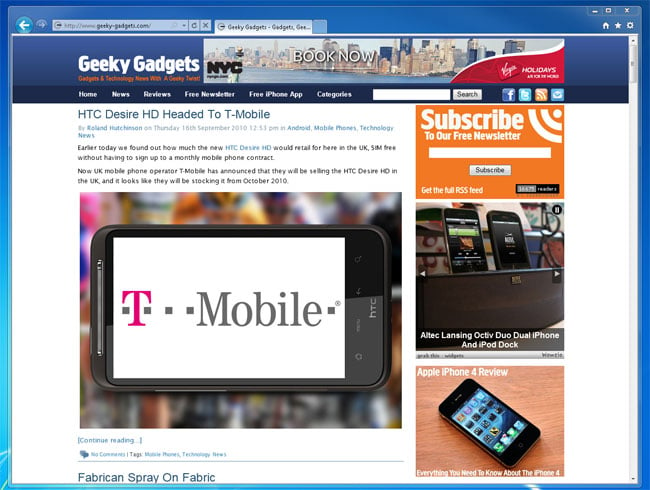Microsoft has released a Beta version of the new Internet Explorer 9, which is now available to try out for Windows 7 and Windows Vista.
They have also announced that the new Internet Explorer 9 will not be coming to Windows XP, which means XP users will have to continue using the current version of Internet Explorer.

Microsoft’s Internet Explorer senior director for business and marketing, Ryan Gavin said that Microsoft would not put IE9 hardware acceleration features in the current version of Internet Explorer IE8 and would also not make IE9 backwards compatible with Windows XP.
Focus on Modern Operating Systems
Instead, they will be focusing on developing Internet Explorer 9 for Windows 7. This decision underscores Microsoft’s commitment to leveraging the advanced capabilities of newer operating systems. Windows 7, with its improved security features, better memory management, and enhanced user interface, provides a more robust platform for the new browser’s features. By not supporting Windows XP, Microsoft can fully utilize the hardware acceleration and other advanced features without being held back by the limitations of an older OS.
Internet Explorer 9 features a stripped-down UI, there is now a minimal top bar like many other browsers, with a unified search and URL bar, and Microsoft’s Bing is the default search engine. This streamlined interface is designed to provide a more immersive browsing experience, allowing users to focus more on the content of the web pages rather than the browser itself.
Enhanced Performance and Security
One of the standout features of Internet Explorer 9 is its hardware acceleration, which uses the computer’s GPU to render graphics and text. This results in smoother animations, faster page loads, and an overall more responsive browsing experience. This feature is particularly beneficial for rich web applications and high-definition video streaming, making IE9 a strong contender in the modern browser market.
Security has also been a significant focus for Internet Explorer 9. The browser includes a new download manager with built-in malware protection, as well as enhanced support for modern web standards like HTML5 and CSS3. These improvements not only make browsing safer but also ensure that web developers can create more dynamic and interactive websites.
Another notable feature is the improved JavaScript engine, which significantly boosts the performance of web applications. This is crucial as more and more applications move to the cloud, requiring robust browser support to function efficiently.
Implications for Developers and Users
For web developers, the release of Internet Explorer 9 means they can take advantage of new web standards and features to create more engaging and interactive websites. The improved support for HTML5 and CSS3, along with the hardware acceleration, opens up new possibilities for web design and functionality.
For users, the decision not to support Windows XP may be a push towards upgrading to a newer operating system. While this may be inconvenient for some, it aligns with the broader industry trend of phasing out support for older software to focus on more secure and capable platforms.
The release of Internet Explorer 9 marks a significant step forward for Microsoft’s browser. By focusing on Windows 7 and Vista, Microsoft is able to deliver a more advanced and secure browsing experience. While this may leave Windows XP users behind, it ultimately benefits the broader user base by pushing the envelope of what a web browser can do.
via The Register
Latest Geeky Gadgets Deals
Disclosure: Some of our articles include affiliate links. If you buy something through one of these links, Geeky Gadgets may earn an affiliate commission. Learn about our Disclosure Policy.